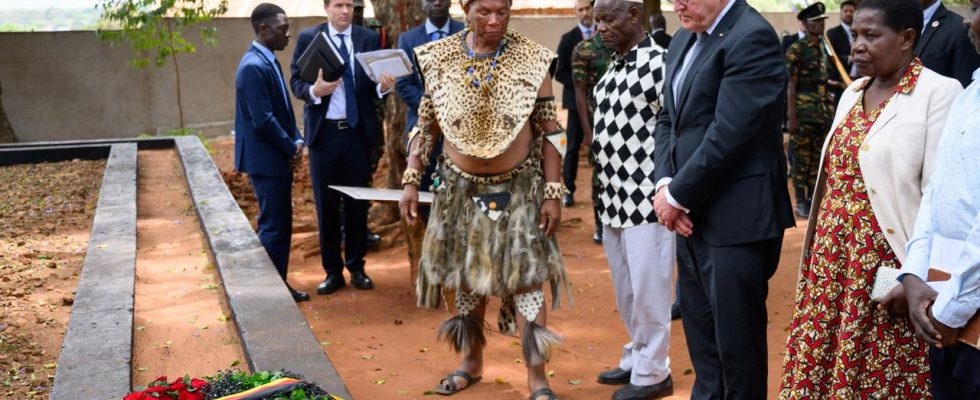During his visit to Tanzania, Federal President Steinmeier asked for forgiveness for the violent acts of the German colonial rulers. The federal government’s goal is to work together to come to terms with the era of exploitation and violence.
During his visit to Tanzania, Federal President Frank-Walter Steinmeier asked for forgiveness for the violent acts of the German colonial rulers. “I bow to the victims of German colonial rule,” said Steinmeier at an appearance in the Tanzanian city of Songea. “As German Federal President, I would like to ask for forgiveness for what Germans did to their ancestors here.”
Steinmeier went on to say that he was “ashamed” by the actions of the colonial rulers in what was then the colony of German East Africa. The Germans “ruled the colony with cruel harshness.” Addressing the survivors of the victims, he said: “I would like to assure you that we Germans will work with you to find answers to the open questions that are troubling you.”
German colonial masters killed Hundreds of thousands
One of the bloodiest chapters in German colonial history took place in Songea. The colonial rulers in what was then German East Africa used great brutality to put down an uprising against their rule between 1905 and 1907. The main trigger of the Maji Maji uprising were the high taxes that the then governor Gustav Adolf Graf von Götzen levied to counteract the financial burden of the German colonization of East Africa that began in 1885.
With the help of African soldiers, the Askaris, Governor von Götzen quickly put down the uprising. The insurgents were punished mercilessly. The people suffered from displacement, hunger and mass death.
Historians estimate the number of deaths during the Maji Maji uprising at up to 300,000. Most of them died as a result of the systematic destruction of fields and villages by the German colonial troops.
Steinmeier for coming to terms with the past
In Songea, Steinmeier also visited the Maji Maji War Memorial Museum, which was symbolically erected on the site where the Germans once publicly executed 67 insurgents. Steinmeier said after visiting the museum that he wanted to convey a “message.” Germany is ready to come to terms with the past together. So far, Germany has not officially recognized the murders of the insurgents as war crimes.
“Nobody should forget what happened back then,” said Steinmeier. His great hope is that the joint coming to terms with the past will include young people in particular: “pupils, students, scientists, museum people.”
Steinmeier also promised that the skulls of killed resistance fighters should be returned. The remains were taken by the colonial rulers as trophies. The victims’ descendants have long been demanding their return. Many bones from East Africa are stored in museums and anthropological collections in Germany. “Hundreds, maybe thousands of skulls,” said the Federal President. “We will do what is in our power.”
With information from Antje Diekhans, ARD Studio Nairobi

